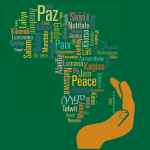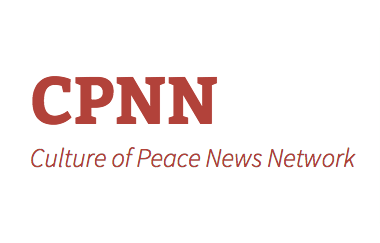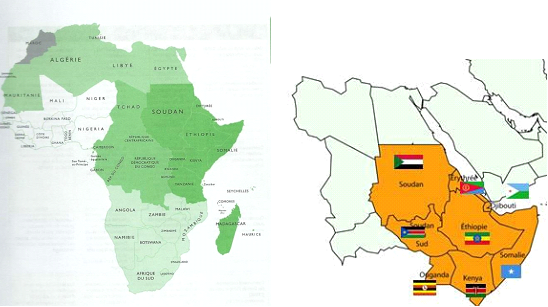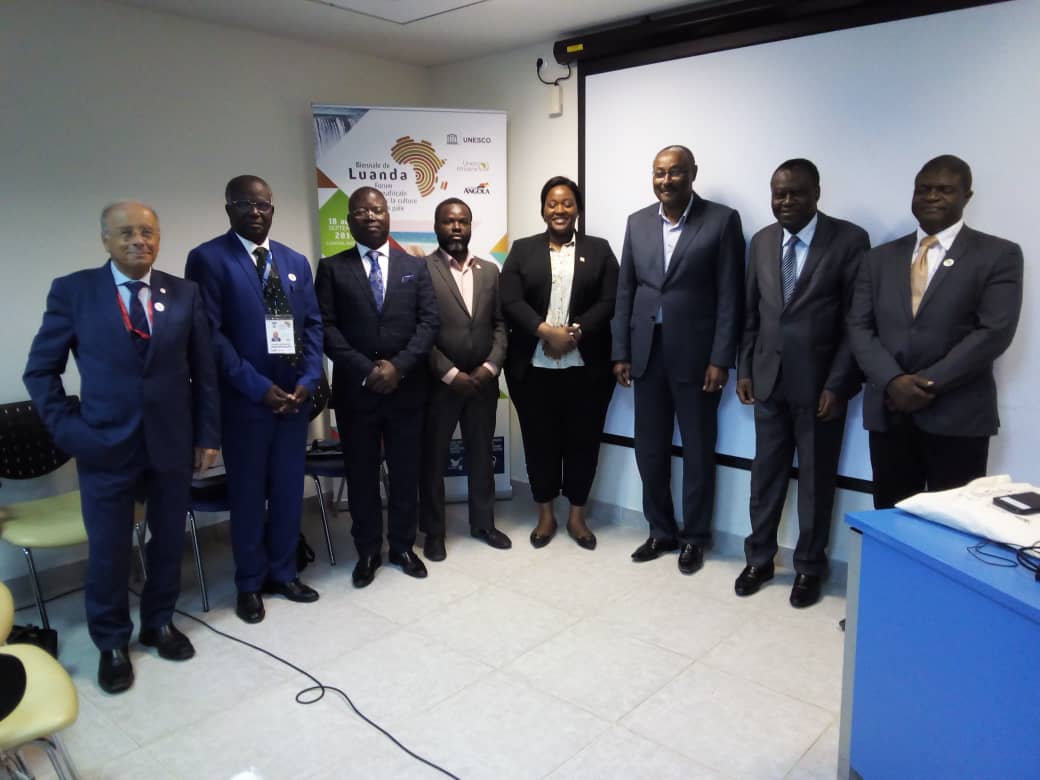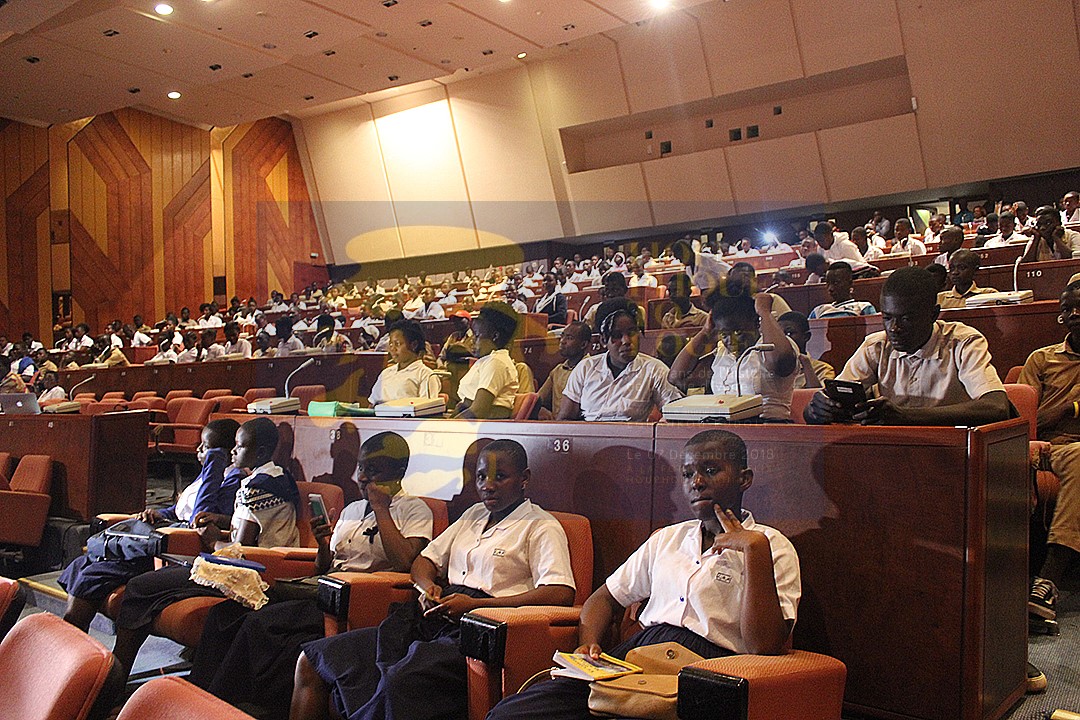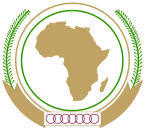-
Welcome to the
Network of Foundations and Research Institutions for the Promotion of a Culture of Peace in Africa
-
The Network's Meetings
News
CPNN (Culture of Peace News Network) bulletin of October 1, 2017
YOUTH TAKE THE LEAD
Youth and children took the lead as millions of people celebrated the International Day of Peace around the world. One cannot help but be charmed by their photos as they engage in many ways to promote a culture of peace.
Especiallly impressive are the hundreds of schools in all of the former republics of the Soviet Union where children cut out paper doves, wrote on each one the name of someone who died defending their country in World War II and sent them aloft in helium-filled balloons. This symbolic demonstration transcended the boundaries of political conflict. For example, teachers and children on both sides of the civil war in the Ukraine celebrated the day in the same fashion, often deploring that war had divided them from their friends and neighbors.
In Bishkek, Kyrgyzstan, youth peer mentors, taking part in leadership training as part of the constructive dialogues on religion and democracy project of International Alert, climbed a mountain and hauled hundreds of rocks to craft an awesome peace sign in Koh Tash village, highlighting the importance of peacebuilding (see photo).
Children often played the leading role in local celebrations. For example, in Northfield, Minnesota: "Students led the rally as speakers and performers, communicating the significance of the international holiday and why the next generation needs to step up to shape their future, Sunny Leonard, sixth-grader and rally organizer, made the closing speech before the march to Carleton College’s Weitz Center of Creativity. She said youth are the future and it’s they who needs to decide how that future will look."
In Pinto, Spain, a highlight of the celebration was the reading of a manifesto drafted by the Council of Children of Pinto which highlights the defense of peace along with various proposals to maintain it from the point of view of the children of the municipality.
The African Union celebrated the International Day of Peace under the theme "Engaging youth in peacebuilding". "This slogan has been celebrated to highlight the role of young people in achieving peace and development," said AU Commissioner for Peace and Security Ismail Shragine.
In Colombia, youth are deeply involved in the reconciliation process. The Youth Network "This is Peace Too" in Tumaco, is carrying out various activities within the framework of the peace week, September 19, 20 and 21 as part of the strategy to reflect on the situation of the country and to transmit messages about forgiveness and reconciliation. They are performing activities such as staging and theater image with a gallery of body images. Young people who are part of the project "Use Your Power to Build Peace" are also participating in the Youth Encounter for Peace in Tumaco, where they exchange ideas with other young people with different youth processes for peace that take place in the surrounding municipalities. Among their activities are murals, ancestral recovery through women’s songs and young songwriters, actions that favor the integration of communities and the construction of healthy spaces for the population.
To celebrate the International Day of Peace, students studying at universities in Uganda from South Sudan are embracing their country’s cultural diversity to foster peace rather than focusing on tribal differences that have torn their country apart. The South Sudanese Students' Union in Uganda organized a festival in Kampala as part of a series of events marking the United Nation’s International Day of Peace on September 21, whose theme this year is: "Together for Peace: Respect, Safety and Dignity for All." Organizers said the event brought together South Sudanese communities and students in Uganda who have been divided along tribal and political lines.
In many cases, music is being used as the universal language of peace. The annual music festival in Nouakchott, Mauritania around the International Day of Peace is dedicated to "jazz music as a vector of peace, freedom of expression and unity." An especially remarkable example of music for peace is the map of hundreds of Montessori schools around the world taking part on September 21 in the project “Sing Peace around the World."
Thanks to the new generation, yes, there is a global movement for a culture of peace. To quote Karen Stanley, an organizer of the events in Lexington, Virginia, "there are lots of places around the globe that are connecting to each other with the International Day of Peace. So it was exciting just to add our little town into that mix and do something for peace."
Press release of the Mandela Institute on the International Conference on “The Challenges of the Opposition in Africa” of November 4, 2017 in Paris
International conference on “the stakes of the opposition in Africa”
Saturday, November 4, 2017 in Paris
The Mandela Institute is organizing an International Conference on “The Challenges of the Opposition in Africa”, on November 4, 2017 in Paris. Its aim is to reflect, with political actors and civil society, on a peaceful democratic governance approach in order to avoid post-electoral conflicts that are very damaging to Africa’s development. It is a constructive dialogue between the Power, the Opposition and the Civil Society on the consolidation of democratic institutions and the construction of a just society.
CPNN (Culture of Peace News Network) bulletin of September 1, 2017
VISIT TO LATIN AMERICA
As the coordinator of CPNN, I was invited recently to take part in peace seminars in Mexico and Brazil. Along with a conference that I attended at the end of 2015 in Colombia, it has given me the chance to appreciate the great advances being made towards a culture of peace in Latin America.
In particular I have been impressed by the Latin American advances in participative budgeting as a form of democratic participation, in mediation and restorative justice, in the struggle against violence against women, and in tourism for peace. Also, it is Latin America that has given us the World Social Forum. Of course, the peace process in Colombia has been the leading peace process in the world in the last few years. And now there is movement towards the development of networks of city peace commissions in Brazil and Mexico.
Participative budgeting allows citizens to debate and define policies, by deciding each year on the city’s budget priorities for investments and services. This stimulates the involvement of the citizenry in the public good and the city’s management. The process was started ten years ago in the Brazilian city of Porto Alegre and has since spread to many cities around the world. My visit this month included the cities of Santos and Curuaru in Brazil as well as Mexico City, and CPNN this month carries articles about participative budgeting in each of those cities.
Brazil is a leader worldwide in the development of restorative justice, as we have seen last October in CPNN. This month we carry an article about progress in restorative justice in the southern region of Brazil. Similar systems of mediation as alternative justice are increasingly used in Mexico as we have seen in previous articles in CPNN in July and November, 2016, and we carry an article this month from Chiapas, the southern region of Mexico.
I was impressed during my visits by the high level of violence against women, and the increasing struggle in those countries to stop the violence. In Brazil, the struggle is carried out in the framework of a law named after one of the victims, Maria da Penha, while in Mexico, it is in the framework of the General Law for Women’s Access to a Life Free from Violence. In Colombia, one of the initiatives is being carried out in the framework of traditional indigenous rituals. In a related note, we carry an article from Colombia this month about the creation of a Council of Indigenous Women as a integral part of the peace process in that country.
Latin America is also a leader for peace tourism. This will be considered in October at the Latin American Congress of Tourist Cities, entitled "Constructing Peace through Tourism." In this regard we carry stories this month about tourism in Puebla, Mexico, and the development of tourism as a contribution to the peace process in post-conflict zones of Colombia.
The World Social Forums, which began in Brazil, can be considered as the most important global gatherings for a culture of peace. CPNN has previously carried stories about the World Social Forum Belem (2009) in Brazil, as well as the last Forums in Canada and Tunisia. Next year the forum returns to Brazil where preparations are being made in Salvador de Bahia.
Finally, I want to mention that progress is being made in Mexico and Brazil towards networks of city peace commissions. A number of commissions were established in Brazil during the International Decade for a Culture of Peace and we carry an update on their activities, including the most city peace recent commission in Santos, which is now giving consideration to include the culture of peace activities by the youth of that city such as those previously described in CPNN. As I write this, a network of city peace commissions is being established in Pernambuco, Brazil, and the Mexican Association of Mayors is considering a proposal for city peace commissions at their annual meeting.
I would like to thank my friends in Mexico, Brazil and Colombia for inviting me to visit and take part in their development of a culture of peace, and I am sure we will hear much more from them in the future.
Newsletter of the African Union (AU) and the Horn of Africa (HOA) from June 1st to August 31st 2017
This bulletin deals with African issues of peace and security through the decisions and resolutions of the African Union (mainly by its Peace and Security Council) and those of the United Nations. He also discusses security issues through the international press.
(June 1 to August 31, 2017)
The Network Meetings
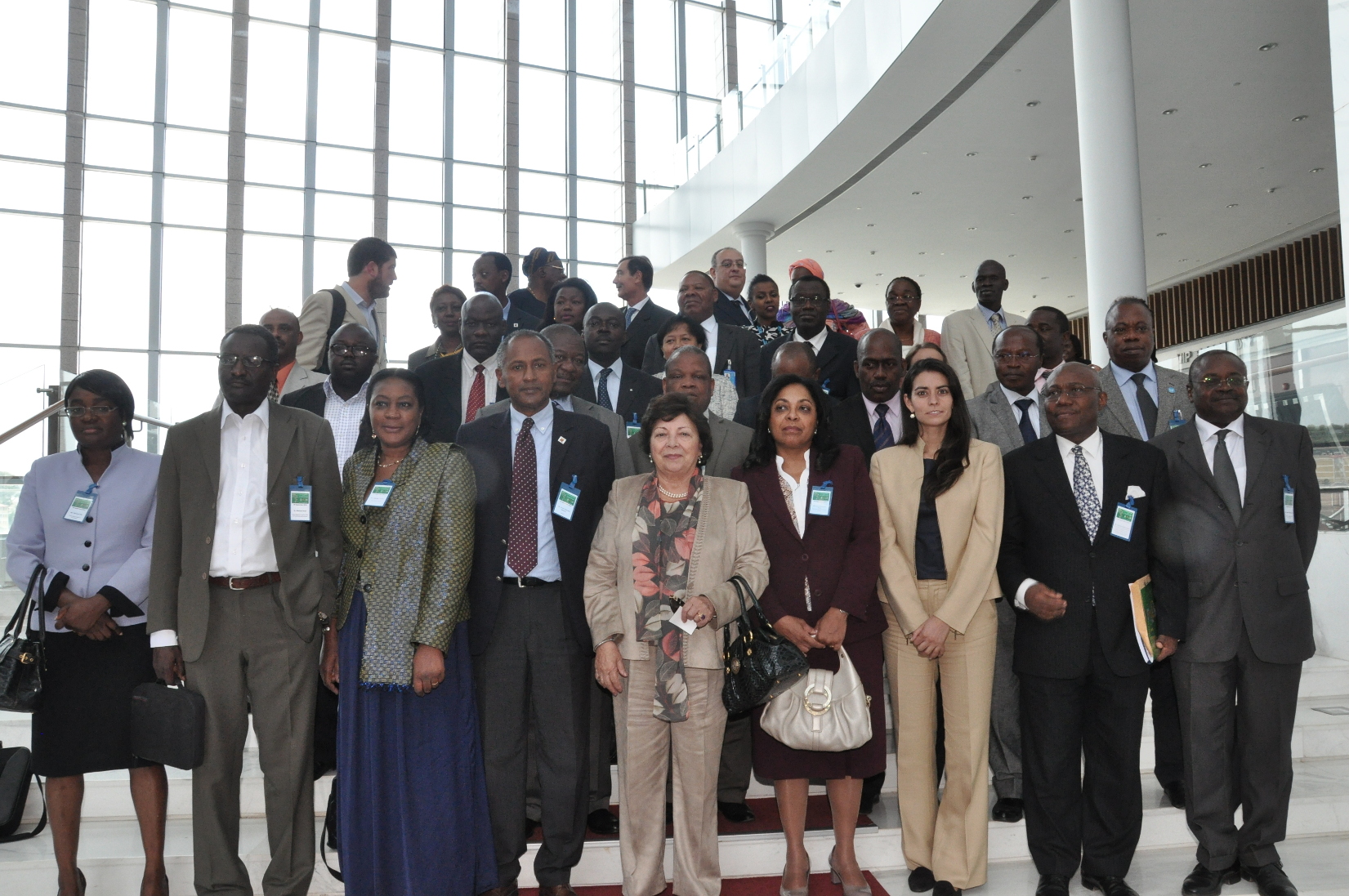
Links
FESA-UNESCO International Conference, December 12-13, 2016, Luena, Angola
Third Meeting of the Network September 11-12, 2015 in Soyo, Angola
Second Meeting of the Network, from September 21 to 24, 2014 in Yamoussoukro, Côte d'Ivoire
Network Creation Meeting on September 20, 2013 in Addis Ababa, Ethiopia
Text Resources
- Call for Papers HARIS 2 JUNE 2021
- Report of the 5th Meeting of Members of the Network held on 21 September 2019 in Angola on the sidelines of the Luanda 2019 Biennale for the Culture of Peace
- Activity Report 2019
- Program of the Luanda Biennale
- DRC the six-day war in Kisangani
- Insecurity in the Masisi in Eastern DR Congo
- General Report of the Houphouet Boigny Foundation International Conference, October 20, 2018
- RAPPORT FINAL DE LA CONFERENCE FESA-UNESCO SUR LE THEME "PREVENTION DES VIOLENCES ET PROMOTION DE LA CULTURE DE LA PAIX EN PERIODE ELECTORALE EN AFRIQUE" LES 12 ET 13 DECEMBRE 2016 A LUENA EN ANGOLA
- BULLETIN DE L’UNION AFRICAINE (UA) ET DE LA CORNE DE L’AFRIQUE (HOA) du 1er juin au 31 Août 2017
- LES STATUTS DU RÉSEAU
- RAPPORT D'ACTIVITÉS 2014 - 2015 DU RÉSEAU
- RAPPORT D'ACTIVITÉS 2015 - 2016 DU RÉSEAU
Welcoming Remarks
You are welcome to visit the website of the Network of Foundations and Research Institutions for the Promotion of a Culture of Peace in Africa.
The Network was created at the end of the Addis Ababa meeting on September 20 and 21, 2013 with a view to "creating a continental and sustainable peace movement capable of mobilizing African States, the private sector, African artists and leaders, international organizations and regional development actors as well as NGOs and grassroots associations". It is currently composed of 44 African and non-African organizations listed here.
You will find on our website articles, publications, photos and videos concerning the promotion of the Culture of Peace on the African continent. We also keep you informed about upcoming events.
